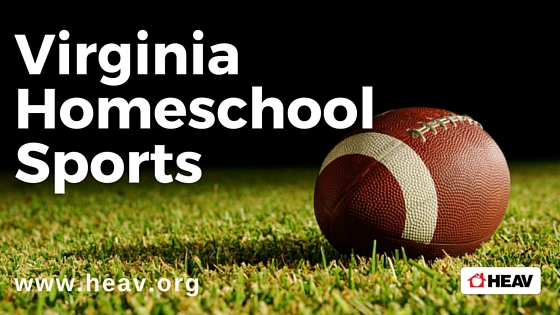 Last year House Bill 1626, which would have granted homeschooled students access to public school athletics, passed the House (57-41) and the Senate (22-13) only to be vetoed by Governor McAuliffe. This year the state’s homeschoolers and their supporters are trying again.
Last year House Bill 1626, which would have granted homeschooled students access to public school athletics, passed the House (57-41) and the Senate (22-13) only to be vetoed by Governor McAuliffe. This year the state’s homeschoolers and their supporters are trying again.
Senate Bill 612 and House Bill 131 would prohibit public schools from barring homeschooled students from their athletic activities and thus require the Virginia High School League (VHSL) to change its requirement that student athletes be regular students at the school they represent.
“Our research is clear—access to public school extracurriculars offers tangible benefits to homeschooled students,” said Rachel Coleman, executive director of the alumni-run Coalition for Responsible Home Education. “It’s time to give Virginia’s homeschooled students access to public school athletics.”
Participation in public school athletics and other extracurriculars has been found to have pronounced benefits for children’s socialization, self-esteem, and leadership skills across the board. A recent study of homeschool alumni in particular found that those who participated in public school athletics rated their homeschooling experience more highly than did other respondents.
Further, researcher Joseph Richard Barno found that college admissions officers weighted extracurriculars more heavily for homeschool graduates than for traditionally-schooled graduates, suggesting that extracurricular participation is especially important for homeschooled students who are college-bound. “Excluding homeschooled children from this important aspect of physical and personal development puts them at a profound disadvantage with respect to their peers,” Coleman said.
Virginia’s Senate Bill 612 and House Bill 131 are part of an ongoing trend toward increasing homeschooled students’ access to extracurriculars in their local public schools. Over half of all states provide homeschooled students some form of participation in athletics or other extracurriculars through their local public schools, and that number is growing.
Many states also allow homeschooled students to take individual courses at their local public schools. In fact, in 2007, the most recent year for which there is data, 16% of homeschooled students were enrolled in school part time.
“Cooperation between homeschoolers and local school districts benefits homeschooled students,” said Coleman. “When public schools provide homeschooled students with access to curricular and extracurricular activities, they foster a positive relationship between public schools and homeschool families.”
The Organization of Virginia Homeschoolers has been promoting sports access bills in Virginia for several years now. In 2012, they conducted a survey of state athletics associations and found that granting homeschooled students access to public school athletics has not caused problems in those states that have already done so. The organization’s website features the stories of numerous homeschooled children who would like the chance to play, highlighting the benefit sports access would bring homeschooled children across the state.
Critics of homeschool sports access point to the variety of community athletic leagues available to younger children, but these options tend to narrow as children grow older, forcing parents to choose between homeschooling and athletic participation. “The evidence is clear that granting homeschooled children access to public school athletics improves homeschool outcomes,” said Coleman. “It’s time to let these children play.”

